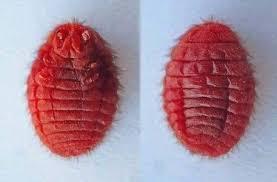this is the bug used for red candies.
Categorias
- Sustainability
- Início
- Wellness
- Theater
- Sports
- Shopping
- Religion
- Party
- Outro
- Networking
- Music
- Literature
- Art
- Health
- Gardening
- Jogos
- Food
- Fitness
- Film
- Drinks
- Dance
- Crafts
- Causes
Leia Mais
What is Sustainability and Why is it Important?
# **What is Sustainability and Why is it Important?**
##...
NOTABLE INDIAN FESTIVALS IN SEPTEMBER
1. Ganesh Chaturthi - September 10: This festival celebrates the birth of Lord Ganesha. People...
Methods for Conservation of Soil
Following methods are normally adopted for conserving soil:
1. Afforestation:
One of the best...
Elections 2024
General elections are being held in India from 19 April to 1 June 2024 in seven phases, to elect...
⚡🔌 Celebrate International E-waste Day with Go Sharpener! 🔌⚡
Managing e-waste effectively involves several key steps:
Reduce: Minimize electronic purchases...
×
Your daily access limit has been reached. Please try again tomorrow.
© 2025 GoSharpener Pvt.Ltd.
Refund and Cancellation policy - We do not entertain any refunds and cancellation Portuguese
Refund and Cancellation policy - We do not entertain any refunds and cancellation Portuguese


Allergic reactions
Some people may experience allergic reactions to cochineal extract, including hives, itchy skin, rhinitis, diarrhea, and anaphylaxis.
Labeling
In the US, the FDA requires that cochineal extract be identified by name on food labels.
Pasteurization
The FDA also requires that cochineal extract be pasteurized to destroy any salmonella.
Vegetarian
Cochineal is not suitable for vegetarians because it's made from insects.
Cochineal extract is derived from the female cochineal, a type of insect that lives on prickly pear cacti. The insects are sun-dried, crushed, and treated with an acidic alcohol solution to produce carminic acid, which is then used to make cochineal extract.
Cochineal extract is used in many foods and drinks, as well as in cosmetics and pill coatings.